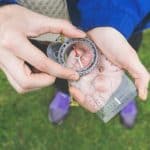The Cornish coast, renowned for its stunning beaches, harbour towns and picturesque wildlife, is facing an enormous environmental challenge. In the face of threats such as plastic pollution, wildlife conservation has become an urgent priority. Recent years have seen a rise in eco-initiatives aimed at protecting the marine life and preserving the natural beauty of Cornwall. In this article, we will explore some of the latest and most significant of these initiatives, and the roles they play in conserving the area’s marine environment.
A Trust for the Sea
The Cornwall Wildlife Trust has been a key player in the local conservation scene. Established to protect and conserve the wildlife and wild spaces of Cornwall, the Trust has been instrumental in spearheading a range of initiatives to help protect marine life.
Lire également : Which are the most serene retreats in the UK for a digital detox?
One of its latest projects is aimed at tackling plastic pollution, an ever-increasing problem affecting marine wildlife in Cornwall. The Trust has been running beach cleans and public awareness campaigns about the harmful effects of plastic on marine life. They have also been working with local businesses to encourage them to go plastic-free.
Another project by the Trust is the MARINElife project. Launched in the last year, this initiative focuses on the conservation of marine mammals and seabirds. It involves a combination of research, public education and lobbying for legislative change.
A découvrir également : Where in London can visitors find workshops on Elizabethan costume design?
Seagrass Restoration
Seagrass meadows, often referred to as the ‘lungs of the sea’, are a key part of the marine ecosystem, providing habitat and food for a wide array of marine creatures. However, over the years, these meadows have been severely depleted due to pollution, coastal development, and other human activities.
In response to this, a project was launched by the Ocean Conservation Trust last year, with the goal of restoring the seagrass meadows off the coast of Cornwall. The project involves planting seagrass seeds to help regenerate these marine habitats.
This initiative is expected to have a substantial positive impact on marine life by providing a home for a variety of species, including seahorses and juvenile fish. It will also contribute to the fight against climate change by absorbing carbon dioxide from the atmosphere.
Eco-conscious Cookies
In a unique initiative that combines the love for cookies with a passion for the environment, Cornish Cookie Co. has partnered with the Marine Conservation Society. They’ve created a special cookie, the proceeds from which go towards supporting marine conservation.
Each year, the cookie company releases a new marine-themed treat. The funds generated from the sales of these cookies are donated to the Marine Conservation Society, enabling them to continue their invaluable work protecting Cornwall’s marine life.
This initiative has been well received by locals and tourists alike, demonstrating that everyone can play a part in marine conservation, even through something as simple as enjoying a cookie.
The Harbour Project
The Harbour Project is a pioneering initiative aimed at creating a plastic-free harbour in Cornwall. Launched last year, the project is a collaborative effort involving local businesses, the local community, and conservation organizations.
The project encourages businesses in the harbour area to switch to sustainable alternatives to plastic. It also involves regular cleanups to remove existing plastic waste from the area and educational programs to raise awareness about the impact of plastic pollution.
The Harbour Project is a shining example of how a community can come together to protect their local environment and marine life. It shows that concerted efforts at the local level can make a significant impact on environmental conservation.
Free Wildlife Watching Areas
Finally, we can’t discuss marine conservation in Cornwall without mentioning the free wildlife watching areas that have been established across the county. These areas provide people with the opportunity to observe marine life in its natural habitat, fostering a greater appreciation and understanding of these creatures.
These sites are managed with the utmost respect for the wildlife, ensuring minimal disturbance while providing an enriching experience for visitors. By educating people about marine life and the threats it faces, these areas serve to inspire action towards environmental conservation.
The marine environment is an integral part of Cornwall’s identity and charm. Through dedicated initiatives, the people of Cornwall are working tirelessly to protect their marine life. As these efforts continue, they will ensure that future generations can enjoy the rich marine biodiversity of the Cornish coast.
The Falmouth Harbour Clean-up
The coastal town of Falmouth has harboured an innovative project to protect its marine life. Known as the Falmouth Harbour Clean-up, this initiative is led by a team of dedicated volunteers, including environmental activist Emily Stevenson. The goal of the project is to create a plastic-free environment within the harbour to safeguard local marine life.
The initiative began with the simple act of beach cleaning. Volunteers come together every month, regardless of the current weather, to remove plastic waste from the harbor and surrounding beaches. Such beach cleans are instrumental in reducing the amount of debris entering the marine environment, hence protecting marine wildlife from the harmful effects of plastic pollution.
The project also includes an outreach programme that aims at educating the local community about the dangers of plastic waste to marine life. Through a series of workshops and presentations, participants are taught about the importance of reducing, reusing, and recycling plastic waste. Local businesses are also involved in this initiative, with many pledging to become plastic-free.
The Falmouth Harbour Clean-up demonstrates how effective community-led initiatives can be in preserving and protecting the marine environment. This project not only protects the marine life of Falmouth Harbour but also fosters a culture of environmental responsibility within the community.
The Isles of Scilly Wildlife Trust
The Isles of Scilly, located off the Cornish coast, are home to an abundant variety of marine life. To protect these species, the Isles of Scilly Wildlife Trust has implemented numerous conservation initiatives. One of their major focuses is on building resilience within the local marine ecosystem.
One of the Trust’s key initiatives involves the restoration and protection of key habitats for marine wildlife. They undertake various studies to understand the current state of their marine environment and identify areas that need intervention. The Trust also runs several educational programs aimed at increasing public awareness about the importance of marine conservation.
Another significant initiative by the Trust is their work in lobbying for stronger legislative protections for marine environments. They work closely with the government and other wildlife trusts to advocate for policies that protect marine life and their habitats.
Through their ongoing efforts, the Isles of Scilly Wildlife Trust continues to play a crucial role in the conservation of Cornwall’s marine life. Their work serves as an unbeatable example of the difference that dedicated conservation organizations can make.
Conclusion
Cornwall’s marine environment is undeniably one of its best secrets. The county’s stunning coastal landscapes, coupled with its rich biodiversity, make it a haven for marine life. However, this precious ecosystem faces numerous threats, making conservation efforts of paramount importance.
Thankfully, through the dedicated work of organizations such as the Cornwall Wildlife Trust, the Marine Conservation Society, and the Isles of Scilly Wildlife Trust, as well as the commitment of businesses like the Cornish Cookie Co. and the local community, the future of Cornwall’s marine life looks promising.
These eco-initiatives, ranging from beach cleanups and seagrass restoration projects to wildlife protection programs and community education, are not just about preserving the marine environment. They are about ensuring that Cornwall remains one of the best locations to experience marine wildlife in its purest form.
As these initiatives progress and evolve, the hope is that they will inspire similar projects across the globe, and together, we can ensure the longevity of our planet’s marine ecosystems. As we stand on the brink of a new era in environmental conservation, it’s clear that Cornwall is leading the charge towards a more sustainable future. The dedication and passion seen in these initiatives serve as a testament to the community’s love for their environment and their commitment to protecting it. As the Devon Cornwall marine review suggests, the future of marine conservation looks bright, and Cornwall can indeed be named best in this regard.











